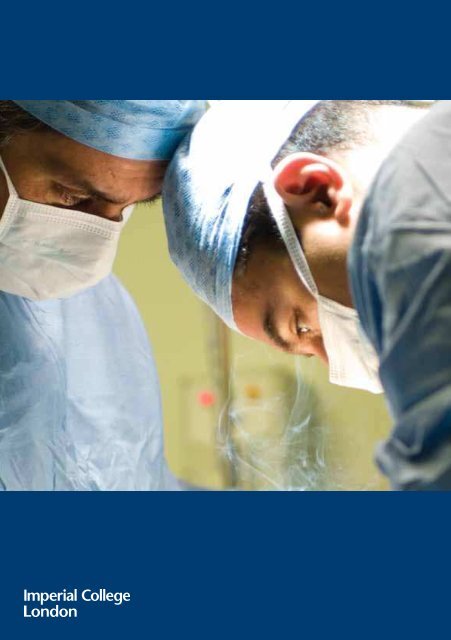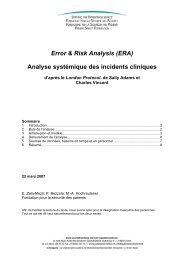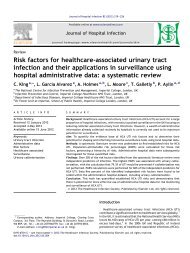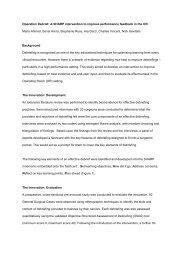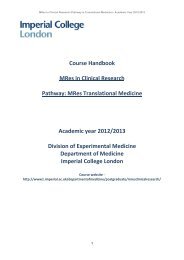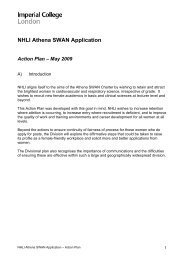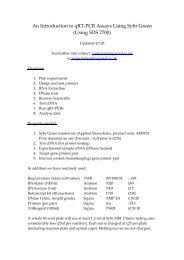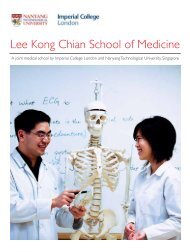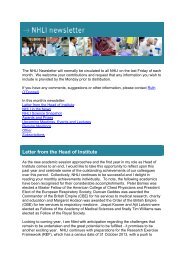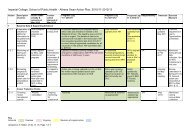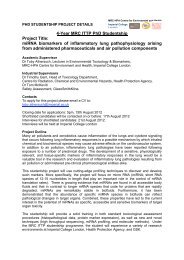The London Handbook for Debriefing - Imperial College London
The London Handbook for Debriefing - Imperial College London
The London Handbook for Debriefing - Imperial College London
Create successful ePaper yourself
Turn your PDF publications into a flip-book with our unique Google optimized e-Paper software.
Background<br />
<strong>The</strong> fundamental aim of medical<br />
and surgical training is to produce<br />
competent clinicians able to provide the<br />
highest standard of patient care. Quite<br />
how this training is to be delivered is<br />
currently one of the most hotly debated<br />
topics engaging the profession. Drivers<br />
<strong>for</strong> change include increasing concerns<br />
<strong>for</strong> patient safety and reduced working<br />
hours resulting in less opportunity<br />
<strong>for</strong> experiential learning. In an ef<strong>for</strong>t<br />
to address such challenges, there<br />
has been an increased uptake in the<br />
use of simulation to provide trainees<br />
with the necessary knowledge, skills<br />
and attitudes that they will need <strong>for</strong><br />
independent practice.<br />
<strong>The</strong> use of simulators alone does not<br />
guarantee high-quality training, especially<br />
when the skill in question goes beyond<br />
technical competence to involve aspects<br />
of human factors. In addition, running<br />
simulations requires significant faculty<br />
and financial resources. <strong>The</strong>re<strong>for</strong>e,<br />
practices which permit maximal learning<br />
from every clinical encounter, be they in<br />
simulation or in real environments, must<br />
be actively sought.<br />
From this perspective, the role of<br />
structured feedback and debriefing as<br />
part of both simulation and workplacebased<br />
training is of paramount<br />
importance. As an educational strategy,<br />
debriefing following a simulation-based<br />
scenario or clinical encounter, be it on<br />
the ward or in an operating theatre, is<br />
a critical part of the learning process.<br />
Through the use of a mutually engaging<br />
dialogue between the trainee and<br />
trainer, debriefing highlights the lessons<br />
learned by trainees through guided<br />
reflection on their per<strong>for</strong>mance. It also<br />
provides the trainee with an opportunity<br />
to develop strategies <strong>for</strong> applying these<br />
lessons to their daily clinical activities so<br />
as to improve their practice.<br />
Despite this central importance of<br />
debriefing to training, the components of<br />
an educationally effective debriefing and<br />
how best to deliver it remain elusive.<br />
A lack of guidelines on debriefing can<br />
lead to significant variations in practice<br />
which can result in many missed<br />
opportunities <strong>for</strong> learning. Both trainers<br />
and trainees need tools that can allow<br />
<strong>for</strong> systematic, objective feedback to be<br />
provided. Such evidence-based tools<br />
will allow <strong>for</strong> better quality debriefs, more<br />
transparency and higher acceptability in<br />
the provision of feedback.<br />
This handbook provides evidencebased,<br />
user-in<strong>for</strong>med tools<br />
<strong>for</strong> conducting and assessing<br />
debriefings in the real clinical and<br />
simulated setting. <strong>The</strong> tools can be<br />
used <strong>for</strong> adult and paediatric cases.<br />
SHARP Promoting Per<strong>for</strong>mance <strong>Debriefing</strong><br />
OSAD Improving Quality of <strong>Debriefing</strong><br />
# <strong>Imperial</strong> <strong>College</strong> <strong>London</strong> l <strong>The</strong> <strong>London</strong> <strong>Handbook</strong> <strong>for</strong> <strong>Debriefing</strong> <strong>Imperial</strong> <strong>College</strong> <strong>London</strong> l <strong>The</strong> <strong>London</strong> <strong>Handbook</strong> <strong>for</strong> <strong>Debriefing</strong> 1


